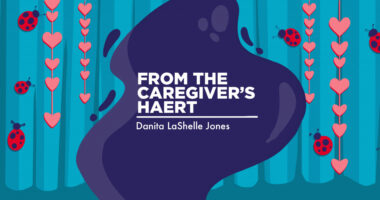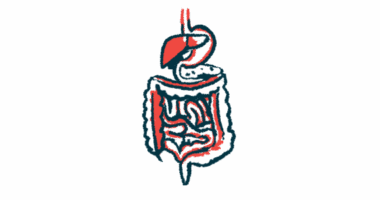
Self-care tips for the HAE caregiver
Last updated Oct. 8, 2024, by Susie Strachan
Being a caregiver for someone living with a rare disease like hereditary angioedema (HAE), especially if they are still young, often means staying alert to the unpredictable appearance of symptoms, including severe swelling.
But the need to be on call for an unexpected episode of HAE can take an emotional toll on you, causing stress, anxiety, and potentially burnout.
Whether you’re the parent of a child or teenager with HAE, or have an adult child, a spouse, or parent who is living with HAE, it’s still important to care for yourself.
Remind yourself that making self-care for caregivers a priority isn’t being selfish. By looking after your own physical and mental health, you will be better able to handle the demands of being an HAE caregiver and provide the best support to your loved one.
The challenges of being a caregiver
Balancing the responsibilities of raising a child with HAE can be overwhelming.
You probably play a vital role in managing your child’s symptoms and treatments, coordinating healthcare appointments, and communicating information about the condition and HAE attack management.
Combined with the unpredictability of HAE attacks and the constant need to be prepared, it can make you feel as though you’re always on edge and leave little emotional room to care for yourself.
During the teenage years, as your child reaches puberty, HAE attacks may become more frequent or severe and require seeing healthcare providers more frequently.
This period may involve adjusting treatments, adding more preventive treatments, and incorporating additional strategies into your child’s daily routine to avoid triggers. At the same time, your teenager may be craving more independence while still needing close monitoring and support.
If you have a partner or spouse who has HAE, or an adult child, your focus may not be on managing HAE. Instead, your role may involve working together to address their challenges and providing support as they follow their treatment and emergency plans.
The upshot is that, no matter the age of your loved one who has HAE, the unpredictability of the attacks, plus the need for quick responses, can leave you feeling overwhelmed.
Over time, the strain of this responsibility may lead to caregiver burnout. Burnout can feel like chronic fatigue, emotional exhaustion, and a sense of detachment from the person you’re caring for. It also can affect your mental health, leading to feelings of frustration, guilt, anxiety, or depression.

HAE stress management
Strategies that address stress management for caregivers aim to make you more resilient and better able to handle the unpredictability of your loved one’s HAE swelling attacks.
Because HAE is a rare disease, finding others who truly understand what you’re going through by building a support network is one way to get guidance on how to make time for yourself.
Your support network also may be able to offer practical tips for caregivers who have kids with HAE. Some strategies that may help you include the following:
- Document daily health updates, triggers, and responses to treatment in a caregiving journal, either in print or on an app to track patterns, lighten the mental load of remembering details, and provide useful information during discussions with HAE healthcare providers.
- Stay organized and reduce anxiety around managing medications and medical appointments with healthcare tracking apps such as HAE TrackR and MyHAEcheckup, which are specifically designed for HAE.
- Give yourself peace of mind that everything is in one place during a crisis by putting together an emergency kit containing all necessary medications, your loved one’s medical information, and any other essential supplies.
- Ask an HAE healthcare provider to help you create an emergency action plan, which should outline when and where to seek emergency care, particularly if traveling, and include a list of emergency contacts.
- Make sure your child gets the right treatment even when you’re not present by informing your child’s school, sports teams, and any other activities about their condition, including what to do and who to contact in an emergency.
- Consider discussing your situation with your employer to make it easier to request time off for medical appointments and emergencies.
Mental health strategies
When you’re caring for someone else’s health, it can be easy to forget you need to treat yourself with the same kindness and understanding.
Seeing your loved one have a swelling attack can be unsettling and stressful. There may be times when you feel helpless or unsure of what to do, especially during severe attacks.
As a parent, it can be hard to accept that you can’t protect your child from everything, especially as they become teenagers. As a partner, you might find it a challenge to look out for them while also honoring their need for independence.
It can be difficult to know when to step in and when to step back, as you want to respect your loved one’s boundaries while making sure they’re safe and supported.
Srategies you can incorporate into your routine to promote well-being and manage stress include:
- keeping a journal of your thoughts and emotions, including what you’re grateful for
- participate in hobbies such as drawing, writing, music, or crafts to express your creativity
- practicing deep breathing, especially if you’re feeling anxious
- following guided imagery techniques, where you visualize peaceful scenes
- using progressive muscle relaxation techniques to reduce physical tension.
When you need more guidance, consider seeking out a professional mental health provider. Try to find a counselor or therapist who has experience in giving emotional support for caregivers. They can help you with managing any overwhelming feelings and offer coping strategies.
Creating a sustainable routine
A routine for stress management balances the needs of the person you care for with your own physical, emotional, and mental well-being.
It begins by setting up a consistent daily routine that builds in time for self-care. Other practices to follow are:
- asking for help and delegating when possible to avoid taking on too many tasks
- talking with your own healthcare provider about your physical and mental health
- keeping to a consistent bedtime and napping when needed
- eating nutritious foods and snacks throughout the day to maintain your energy levels.
Dealing with burnout
Burnout can happen to even the most dedicated caregivers, especially when you are constantly worrying about your loved one’s health and safety.
With HAE, the unpredictability of swelling attacks can heighten your anxiety and take both an emotional and physical toll on you.
Signs of burnout include:
- mood swings and other emotional issues, such as feeling overwhelmed, irritable, anxious, depressed, or detached from your life
- guilt about not doing enough
- tiredness and fatigue
- sleep issues such as insomnia or trouble waking up
- difficulty concentrating and feeling unmotivated
- pessimism about the future.
Useful resources
Organizations like the Hereditary Angioedema Association, HAE Canada, HAE UK, and Hereditary Angioedema International have a supportive community where you can share experiences, gain insights into treatments, and discover helpful caregiving tips and other resources.
Discuss local HAE caregiver support options with your healthcare providers, including in-person support groups, access to professional therapists, and programs at nearby health centers or hospitals that focus on educating and supporting caregivers.
Angioedema News is a resource for the latest news, tips on navigating HAE, first-person columns about living with HAE, and treatments. It also has social media feeds on Facebook, X (formerly Twitter), and Instagram.
Note: Angioedema News is strictly a news and information website about the disease. It does not provide medical advice, diagnosis, or treatment. This content is not intended to be a substitute for professional medical advice, diagnosis, or treatment. Always seek the advice of your physician or other qualified health provider with any questions you may have regarding a medical condition. Never disregard professional medical advice or delay in seeking it because of something you have read on this website. The opinions expressed in this column are not those of Angioedema News or its parent company, Bionews, and are intended to spark discussion about issues pertaining to angioedema.
Recent Posts
- Biocryst expands HAE treatment portfolio with Astria acquisition
- When executing a plan, each person must do the right job at the right time
- Blood pressure drug lisinopril causes gut swelling in man, 54, in rare case
- Rare Disease Week is an opportunity to show that rare is not invisible
- Case highlights rare, life-threatening reaction to common antibiotic




